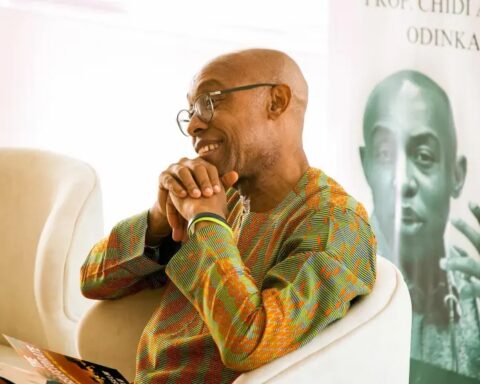
Dr. Luke OnyekakeyahThe evolution of indigenous contractors in Nigeria marked a sharp transition from colonial dominance of the construction industry to local participation in infrastructural development and sustenance.
The scenario portrays a picture of a baby nurtured from cradle to adulthood, when the baby (now a full grown adult), is able to contribute and fend for him or herself. That is the trajectory today’s indigenous contacting firms passed. The fact that we have indigenous contractors that are deeply involved in large-scale modern infrastructural development is remarkable. The challenge is for the indigenous contractors to adapt to modern construction and project management techniques in line with the digital era.
The period 1914-1960 marked the colonial era when local contractors played insignificant role in the construction industry. During that period, the foreign colonial masters dominated the industry. They set the structures and limits indigenous contractors could go, while the foreigners handled major projects like roads, buildings, ports, and railways. Local people worked as artisans, craftsmen and laborers at project sites. Thatch, mud and timber were used in constructing houses and other structures.
As would be expected, the colonists put policies that benefitted their own. Opportunities for indigenous entrepreneurs were limited. The foreign contractors brought modern construction methods and management expertise that the local people had little or no access to. The colonists also focused on projects that enhanced their economic exploitation of the country. That was why efforts were focused on the building of trunk roads, ports and railways, while neglecting structures that benefited the local people.
This trend continued until independence in 1960 when a new chapter was opened. At that point, the landmark infrastructural facilities in place were the Apapa Port Complex, the Eastern and Western railway lines joining in Northern Nigeria, the inter-regional highways, the Lagos, Kano and Enugu airports, among others. With independence in 1960 and the subsequent civil war over, the urge to “Nigerianise” or indigenize the economy cut up with the Federal Government. The aim was to give Nigerians more opportunities, more access to the economy.
Consequently, polices were implemented to promote the growth and development of indigenous contractors. The early development in this regard saw the promulgation of the Nigerian Enterprises Promotion (NEP) Decree in February 1972. This led to the influx of indigenous contractors into the construction industry. The trend bloomed across the country. The emerging contractors faced initial challenges which included limited access to capital and poor project management competences, foreign dominance of commercial activities and lack of financial assistance from established financial institutions.
Despite these constraints, many indigenous contractors flooded the Nigerian construction space. In Lagos, for instance, the top indigenous contractors include Julius Berger Nigeria Plc, RCC Nigeria Limited, Bouygues Construction Nigeria Limited, Datum Group Construction Company, The Building Practice Limited, among others. In Abuja, the top contractors include Solid Gutters Limited, Glidden Paint Home, Orthic Initiatives Limited, Ibetech Electrical Services, HarryBlaze Nigeria Ltd, etc. Other notable contractors include Dantata & Sawoe Construction Company Nigeria Limited, Cappa & D’Alberto Plc, Costain (West Africa) Plc, PW Nigeria Limited, Elalam Construction Company Nigeria Limited, among others.
These companies have expertise in residential, commercial and industrial projects. They are major players in infrastructure development like roads, bridges and airports. They bring world class construction management to the Nigerian market with emphasis on sustainable development.
Despite the challenges, the contractors have executed large-scale projects with 77.2 per cent of contracts reportedly awarded to them in 1998. These include large-scale civil works in refineries, hydro electric dams, oil and gas industry projects such as off-shore living quarters of the Floating Production Storage Offloading vessel for Total Egina deep water field.
This notwithstanding, indigenous contractors still have limited participation in high-value projects, with foreign contracts dominating the market. The competition is keen. Indigenous contractors have continued to record significant progress, thereby serving as catalysts for economic growth and development. The following highlight the positive impacts of indigenous contractors.
Job creation: Indigenous contractors create employment opportunities for the local people, thereby contributing to economic growth and development. This enhances the livelihood of the population.
Community development: By executing various projects in the communities, indigenous contractors help to provide infrastructural services, paying taxes and investing in the communities.
Cultural preservation: Indigenous contractors often incorporate traditional knowledge and practices into their work, thereby helping to preserve cultural heritage and promote cultural diversity.
Capacity building: By partnering with foreign companies, indigenous contractors gain access to new technologies, skills and expertise, thereby enhancing their capabilities and competitiveness.
Role models: Successful indigenous companies serve as role models and inspiration for others in their communities, encouraging entrepreneurship and economic development.
To fully realize their potential as catalysts, indigenous contractors need to benefit from access to funding. Government and organizations should provide financial support and resources to help indigenous contractors overcome funding challenges.
There should be capacity building programmes put in place to help indigenous contractors develop skills and expertise needed to compete in the industry.
Government should give policy support such as preferential treatment in contract awards and tax incentives. The undue preference for foreign contractors should stop.
Partnerships and collaboration between indigenous contractors, government and international companies and organization is necessary to gain access to new technologies, market and expertise.
The future of indigenous contractors looks promising with stability in the country. The following will contribute to their growth and development.
Renewable energy projects: Indigenous contractors are poised to play a significant role in renewable energy initiatives, offering opportunities for expansion.
Advanced manufacturing: There is potential for growth in advanced manufacturing, leveraging local expertise and resources.
Digital infrastructure: Indigenous contractors can contribute to developing Nigeria’s digital infrastructure, driving economic progress.
Two success stories can be cited to showcase what indigenous contractors could do. First is Dorman Long Engineering Limited. This company typifies indigenous engineering excellence. With 75 years presence in Nigeria, show-casing resilience and capability in diverse engineering project in Nigeria.
Finally, Heritage Energy, which has empowered local contractors through capacity building workshops, aligns with Nigeria’s local content development goals.
No doubt, the time is ripe for more indigenous contractors to shine and showcase their expertise and leave indelible marks in the construction industry, given the shift to prefer them to foreign companies.
Dr. Onyekakeyah, a former member of The Guardian Editorial Board, is a public affairs commentator and Daily Query columnist.
Follow us on all social media platforms @dailyquery for news and analyses around the globe.


























